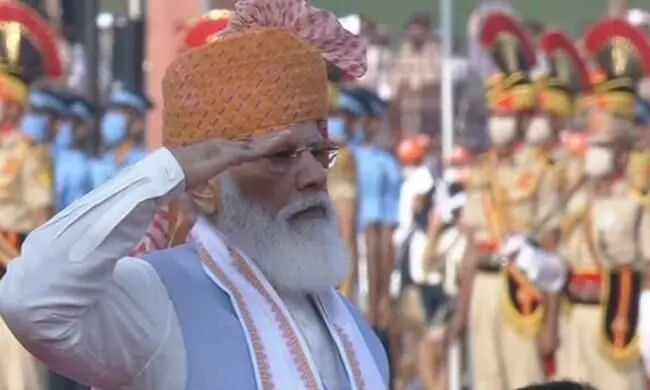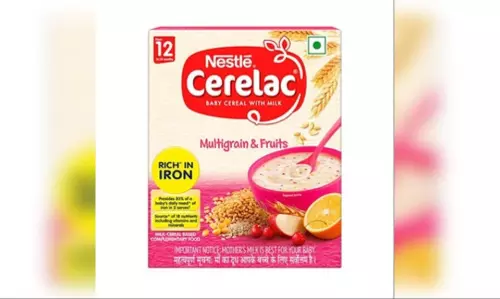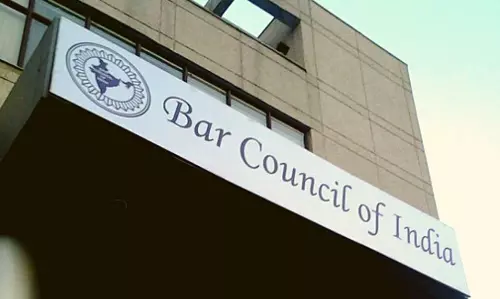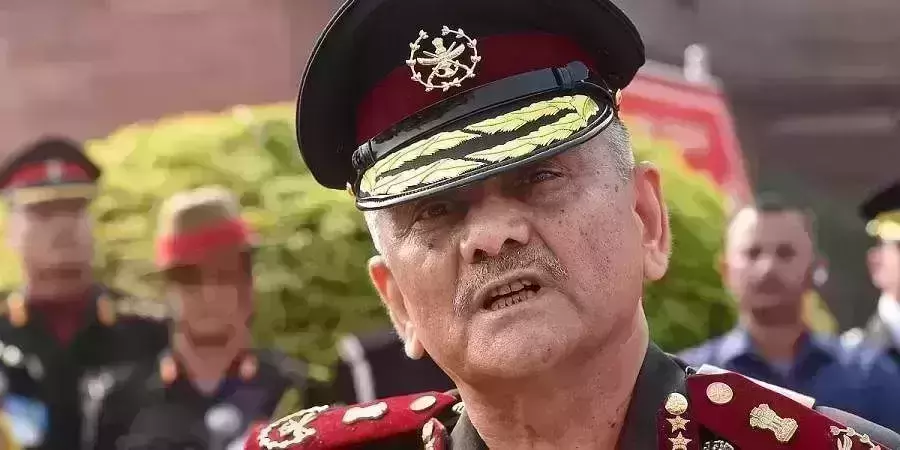

Freedom at stake as PM talks about 'Amrit Kaal' Age of Elixir
text_fieldsIndia is on time travel at this year's Independence Day. Seeds of Hindutva hate have ripened into a complicated harvest for a nation that flirted with a virulent and divisive political ideology. Apart from initial stardust and simulation shows, the rate of increase in mass poverty, decline in socio-developmental indices and the poor industrial and infrastructure growth we see all around - hearken back to conditions that prevailed pre-Independence.
Even as the number of India's poor increased from 60 million to 134 million in just a year of the pandemic, together with the passing of new one-sided laws in important sectors such as education, labour, farms etc... holding grave ramifications for the country's future, Prime Minister Modi addressing the nation from the ramparts of the Red Fort added a new motto for Indians to aspire for. The Prime Minister added "Sabka Prayas" to the earlier three - "Sabka Saath," "Sabka Vikas," and "Sabka Vishwas"; exhorting the nation to strive together to revive its battered spirit of progress.
The new word prayas in the newly coined 'Sabka Prayas' in Malayalam language (Reference to Tamil Nadu Finance Minister Palanivel Thiagarajan's remark that non-Hindi speakers cannot comprehend the PM's Hindi speeches) means dire difficulty. 'Sabka Saath' is non-existent as India is now only Us and Them; the joke about 'Vikas' is that this boy goes missing during national crises such as Covid; and regarding Vishwaas or public trust, it is at the lowest ebb despite the Prime Minister's endless lying and on-camera tears. Sabka 'Prayas' (meaning dire difficulty in Malayalam) seems to be the only one that comes close to the reality of what lies ahead.
The grand architects of Indian freedom, its federal, socialist, secular democracy and its Constitution, from Mahatma Gandhi to Jawaharlal Nehru to Sardar Vallabhai Patel to Subhash Chandra Bose to Bal Gangadhar Tilak to Rani Laxmi Bai of Jhansi to Dr Ambedkar, must be rolling in their graves seeing the nation to which they had dedicated their lives lying in a shambles – with robust and multi-faceted development thwarted, freedom of expression of its citizens blighted, the dignity of its citizens snooped upon, the country's development finances squandered.
The political philosophy "of, for, and by the people" was mangled in our TV studios. In a 1.38 billion strong population, democracy was re-defined in the past couple of years as the will "of, by and for a certain section of the population." The PM drove the final instrument for institutionalizing the divisions among the people of this country by declaring August 14 as the National Partition Horrors Remembrance Day to reap majoritarian mob frenzy by re-circulating the hurts of the greatest genocide in modern history. Compared to the Partition Horrors, the 2002 Gujarat Riots Horrors, embodied in Arko Datta's picture of helplessness on the face of Jalaluddin Ansari, is closer to this day and hour.
As PM Modi seeks to institutionalise the divisions based on our identities of caste and creed, he is making India return to a zero point in its history, negating the advances made in so many years. The very beauty of our democracy was the peaceful co-existence of so many differences and diversities.
"Men vote to change masters willingly, hoping to better themselves," wrote the controversial 16th-century political theorist Niccolo Machiavelli from Florence. In the context of our 75-year-old nation born to freedom at the stroke of midnight on August 14, 1947, its citizens should have exercised their electoral right considering "not only the present but also the future". The following words from Machiavelli's political treatise The Prince can be taken to apply to the state of our nation, too, if the clock could have been set back to early 2014.
Machiavelli asks his reader to "foresee" the troubles that will plague the future.
"For being foreseen, they can easily be remedied, but if one waits till they are at hand, the medicine is no longer in time as the malady has become incurable…
"It happens as with those hectic fevers, as doctors say, which at the beginning were easy to cure but difficult to recognize, but over time when they have not at first been recognized and treated, become easy to recognize and difficult to cure."
"Thus, it happens in matters of state," he says. On the 75th Independence Day, India once again recognizes all that is at stake. The fore-warnings were all there in advance, but Indians had taken democracy for granted.
Strangely, the same advice that Machiavelli gives the new monarch, who he refers to as 'The Prince', could also have been sage advice for Indian citizens a few years back. Doubtless, one section of Indians who still holds onto a 'radical nostalgia' for democracy and free and fair elections sees it all as the nadir of the country's history. In contrast, the other half sees it as the dawn of a brave new era extending to another 25 years into the Amrit Kaal. An Amrit Kaal where irrationality of the masses will reign over justice.
(Leena Mariam Koshy is an independent writer based in Kozhikode, Kerala)























